Future Hospitality
podcast
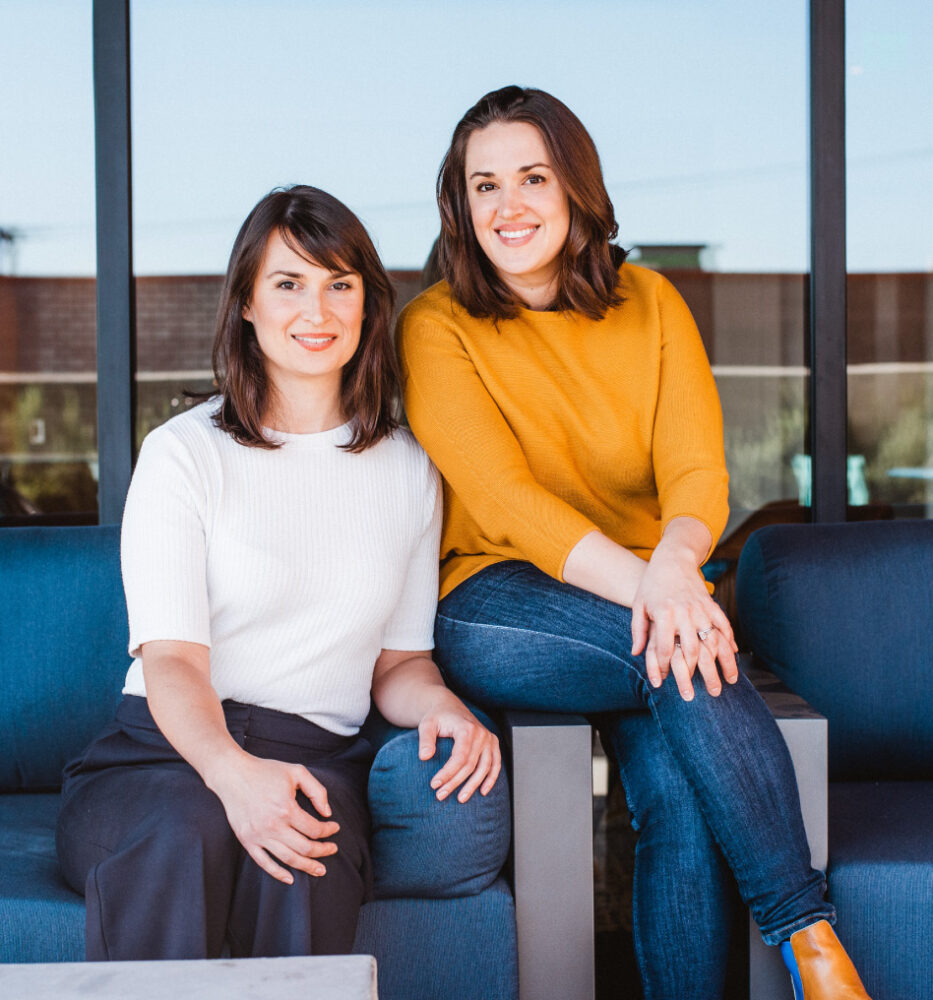
E40: Forging the Future of Alternative Lodging with Lauren & Lee Gonzalez
January 24, 2023
Jeremy Wells: In today’s episode, we sit down with Lauren & Lee Gonzalez of L&L Hospitality, the team behind several outstanding boutique hostels, such as The Local in New York City and Lolo Pass, which opened in May 2021 in Portland, Oregon. During our discussion, we learn about the unique opportunities and challenges that come with owning a hostel and how they navigate that together as business partners and sisters. We also learn about how they create unconventional comfort and a strong sense of place at each property. Well, let’s go ahead and dive in.
[Begin Interview]
Dustin Myers: Lauren and Lee, great to have you on the podcast today.
Lauren Gonzalez: Thanks.
Lee Gonzalez: Thank you. We’re happy to be here.
Dustin Myers: Yeah. So we first met at the ILC Congress, or I guess that’s an ATM machine. I misspeak the Independent Lodging Congress this past fall and I got the pleasure of learning about what you guys are doing and just super fascinating. So I’m glad that we are finally here behind the microphones and going to dive into a deeper conversation together.
Lauren Gonzalez: Great.
Dustin Myers: Yeah. Maybe just for starters, give us a little bit about your backgrounds and what initially led you into the hospitality industry.
the two of us just picked up, left our finance careers and moved to Barcelona
Lee Gonzalez: So Lauren and I, our story is unique because we’re sisters and we’ve been business partners since 2006. She and I had a pretty traditional start and both had careers in finance shortly after or immediately after graduating from university. But within a few years realized that is not where our passion is. And the two of us just picked up, left our finance careers and moved to Barcelona to open up a couple of small hostels. And so that’s the niche that Lauren and I really operate in is the hostel territory.
So she and I opened two small hostels in Barcelona, Spain, and then moved back to the United States in 2013 and opened up The Local, which is a hostel in New York City. We converted a warehouse in LIC, Queens. And then most recently, she and I, during the pandemic, built and opened Lolo Pass, which is quite a large hostel in Portland, Oregon.
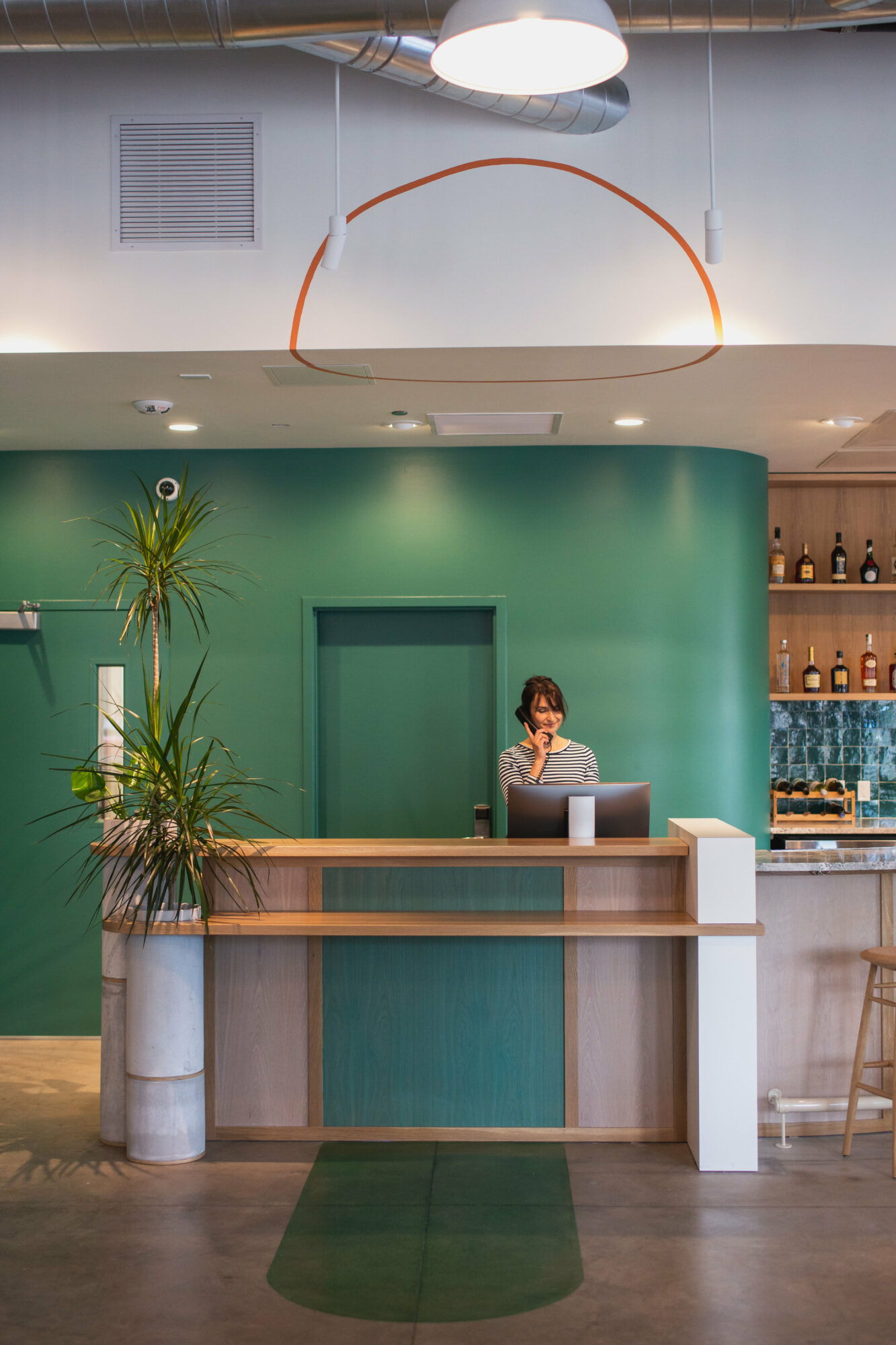
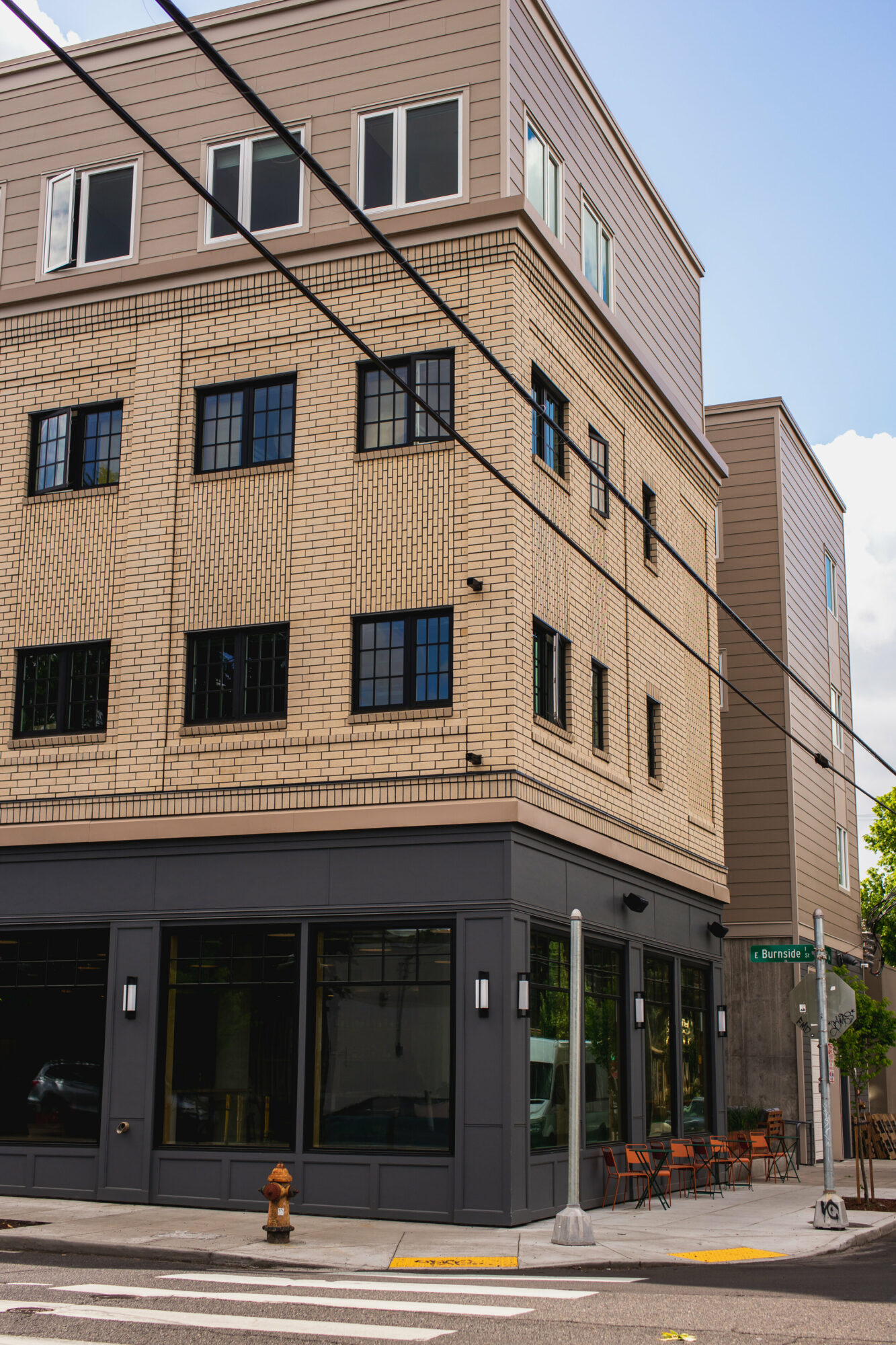
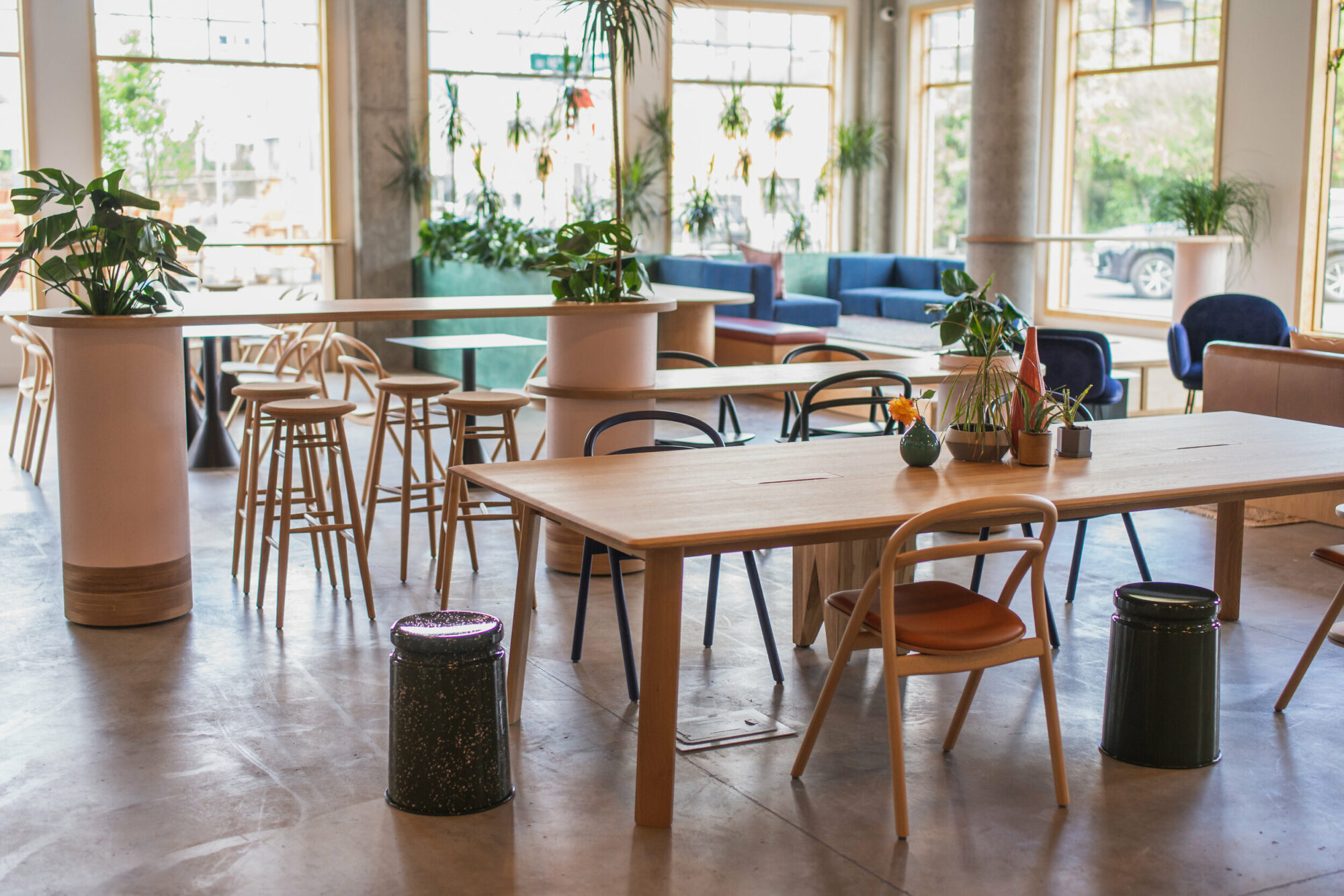
Dustin Myers: Wow! Yeah, we covered a lot of territory there. So maybe just shed some light on kind of the first iteration of your career and where you guys were at, what you guys were thinking, and then I’m guessing there was some type of tie to Barcelona that kind of led you guys there. What did that look like?
Lee Gonzalez: So we really got started in Barcelona just because I had studied abroad in Spain. And so when Lauren and I had the idea, we first were thinking about doing a chain of hostels. We knew nothing about running hostels, but figured at least we understood the market in Spain from a tourist perspective because we had stayed all over the country on road trips and things like that. So that is why we chose Barcelona. Also, if anyone’s been there, it is a place where the sun is always shining. And so we always thought that if we get there and things are miserable, this is way more difficult than we thought, at least it’s a beautiful place to live.
Jeremy Wells: Yeah. I’ve never been to Barcelona. I can imagine it’s a wonderful place to live.
Lauren Gonzalez: Oh, it’s lovely.
Jeremy Wells: Yeah.
Lauren Gonzalez: It’s wonderful. And at that time, it was a huge, huge, I mean it still is, but it was a very big tourist destination. There were not many hostels in Barcelona, and the ones that were there were kind of people running them as lifestyle businesses. They weren’t that great. So we had the idea to do a chain of hostels where it would be kind of one brand where you could travel city to city, know the brand, trust the brand. And so we started in Barcelona thinking we’d begin there. So the two places we opened were both 10 rooms. They were really centrally located. We took the floor of old buildings and renovated them and to add bathrooms, to add the rooms. And then Lee and I pretty much ran everything ourselves for the first few months.
And so the idea with these first two was they’d be sort of our learning lab where we could figure out what guests wanted, what they responded to, really be at the front desk, do all the positions, get to know the guests well and figure out how we could make this bigger if we wanted to do this, if this is something we enjoyed. So yeah, it was great. We ran those for almost seven years, six or seven years, and then sold them to focus on the properties in the US.
I called my folks and said, “I’m going to do this. I have to do this. I’ll always wonder if I don’t do this.”
Jeremy Wells: Yeah, that’s interesting. So making that jump from a finance career to moving to Barcelona and opening some hostels, I guess, what was the conversation like between, Lauren, you and Lee as you were kind of making that jump? What were some of the challenges you had in making that transition? It seems like a big life transition there.
Lauren Gonzalez: Well, to think about it now though, given what like all the experience, the life experience, the business experience we have, we did not have that many conversations about it. I mean, if this is something I was deciding to do today, it would be a much bigger deal.
Lee Gonzalez: Oh yeah.
Lauren Gonzalez: But when you’re 23, 24, however old we were, it was a pretty easy decision.
Jeremy Wells: Yeah.
Lee Gonzalez: So I remember calling my parents because I was working at Goldman Sachs and I was in the third year of a three-year analyst program. It was kind of upper out. And I couldn’t, in good consciousness, get another finance job when I knew that I didn’t love it and I was always thinking about this hostel thing. And so I called my folks and said, “I’m going to do this. I have to do this. I’ll always wonder if I don’t do this.” And they said, “Is your sister involved?” Was the first thing, which was really funny because normally our parents would be like, “Okay, go ahead, do your thing, but don’t sink your sister’s ship.” But they were super supportive of the two of us working together, which really was kind of the most wonderful thing a parent could say to you in that moment. And Lauren at the time was working abroad at HSBC in Milan. And so she was well positioned because she was close to Spain to do a little bit of initial legwork. And do you want to tell the story about the car, Lauren?
Lauren Gonzalez: Sure. So towards the end of my time in Milan, they auctioned off a company car and it was this big silver Saab sedan that was stick shift, even though I didn’t know how to drive stick shift, and it smelled like cigars. And so I bid 3001 euros and won it. Had to drive it to my apartment without knowing how to drive stick shift. But that was kind of how we launched our time in Europe. Lee flew to Milan and we road tripped a little bit around Italy and then through France and into Barcelona, and I’d never been to Barcelona before. I mean, that’s how kind of naive and young we were where I was just like, “Sure, let’s move to Barcelona.” But at the time, the stakes were pretty low. We had a little bit of savings and we figured, “Let’s give this a shot. We’ll move there. Live pretty cheaply and figure out if this is something we can do.”
And so we kind of hit the ground just trying to figure out the laws, learn the language. We spoke Spanish at the time, but didn’t speak Catalan and quickly realized all of the government documents, all government meetings, everything is in Catalan. So that was a challenge. Figuring out the real estate situation in the town. So it was a lot. We learned a lot. I think it has definitely set us up for how we operate now in terms of doing things very leanly, kind of being pretty scrappy as we operate. So it was fun. It was definitely something that would be very hard to do now given the adult responsibilities. But at the time, it was great.
Lee Gonzalez: We had youth and naivety on our side for sure.
Dustin Myers: In that experience, I’m sure that there was a lot of learning processing and just figuring out who you guys were and what you wanted to do. Were there any standout memories during that time, either a great thing or a terrible thing that happened?
Lee Gonzalez: I think the best thing, and this is still in our operations today, is the people. We met fascinating people, whether it was the team working for us. I mean, we had artists. We had a guy who was playing on the FC Barcelona baseball team. I know everyone hears about their football team, but they also have a baseball team, musicians, journalists, you name it. We met really wonderful people working for us. And then also the guests, there are so many guests we won’t forget, and even still to this day, just memorable guests in both of our properties. We’ve had marriage proposals, one that I almost screwed up. Yeah, just really fascinating people passing through and that’s the part we really love.
Lauren Gonzalez: Nice best memory in Barcelona. Do you guys remember the band fun.?
Dustin Myers: Yeah.
Lauren Gonzalez: They had a few hits back in, what, 2012 probably. They came to Barcelona and they’re the wife of one of the singers and her family and mom stayed with us at our hostel and so I got chatting with them as I was serving them breakfast. They were just super fun. They’re from Michigan and they invited us to the concert and so we got to go and like stand in the VIP area and hang out with them and hang out with the band. And that was pretty cool. But you just never know who you’re going to meet in hostels, which is fun. And people are really excited to meet each other in hostels and I think people form much deeper bonds, and you really get to know people more in hostels than you would in a traditional hotel.
Lee Gonzalez: It’s what we call hostel magic.
Dustin Myers: Hostel magic, I like that.
Jeremy Wells: So during that time in Barcelona, I think you said you were there for 10 years or so, right? Is that correct?
Lauren Gonzalez: It was about seven.
Jeremy Wells: Seven, okay.
Lee Gonzalez: Yeah.
Jeremy Wells: So you mentioned that you had sold that portfolio of hostels that you had built. Was that something that you were actively trying to do, or did someone just bring an offer to the table and then you decided to make the transition back to the states? Or how did that go down?
Lauren Gonzalez: Well, after we built these hostels, Lee and I both decided to go and pursue MBAs and so we hired a manager to run them. And then after MBAs, we were approached by an old classmate of Lee’s about opening a hostel in New York City. And so we packed up Barcelona, moved to New York City while still keeping the hostels open in Barcelona in order to get the place in New York running. We quickly realized that it would be a really tough thing to manage both across the ocean. And the economy in Spain had really taken a turn post 2008, but then just the tourism market really vastly changed in Barcelona where everyone saw tourism as the safe haven. And so many hostels, illegal hostels, apartments converted into something that resembled a hostel opened, which made it really hard to operate in Barcelona at the time. So that coupled with us just being busy in the US it seemed like a good time to sell. So we actively marketed those and sold those in 2014, just after we opened the hostel in New York.
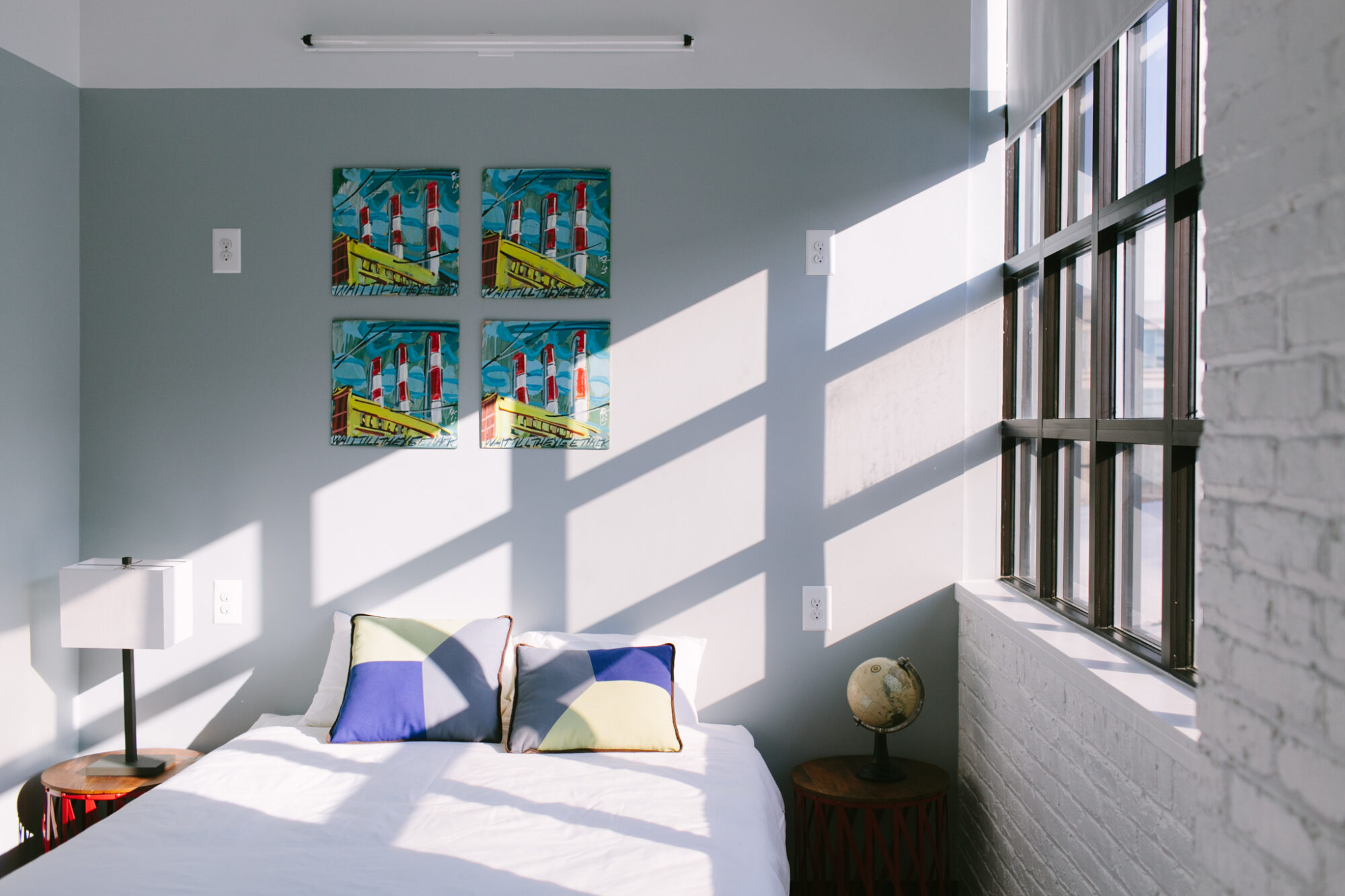
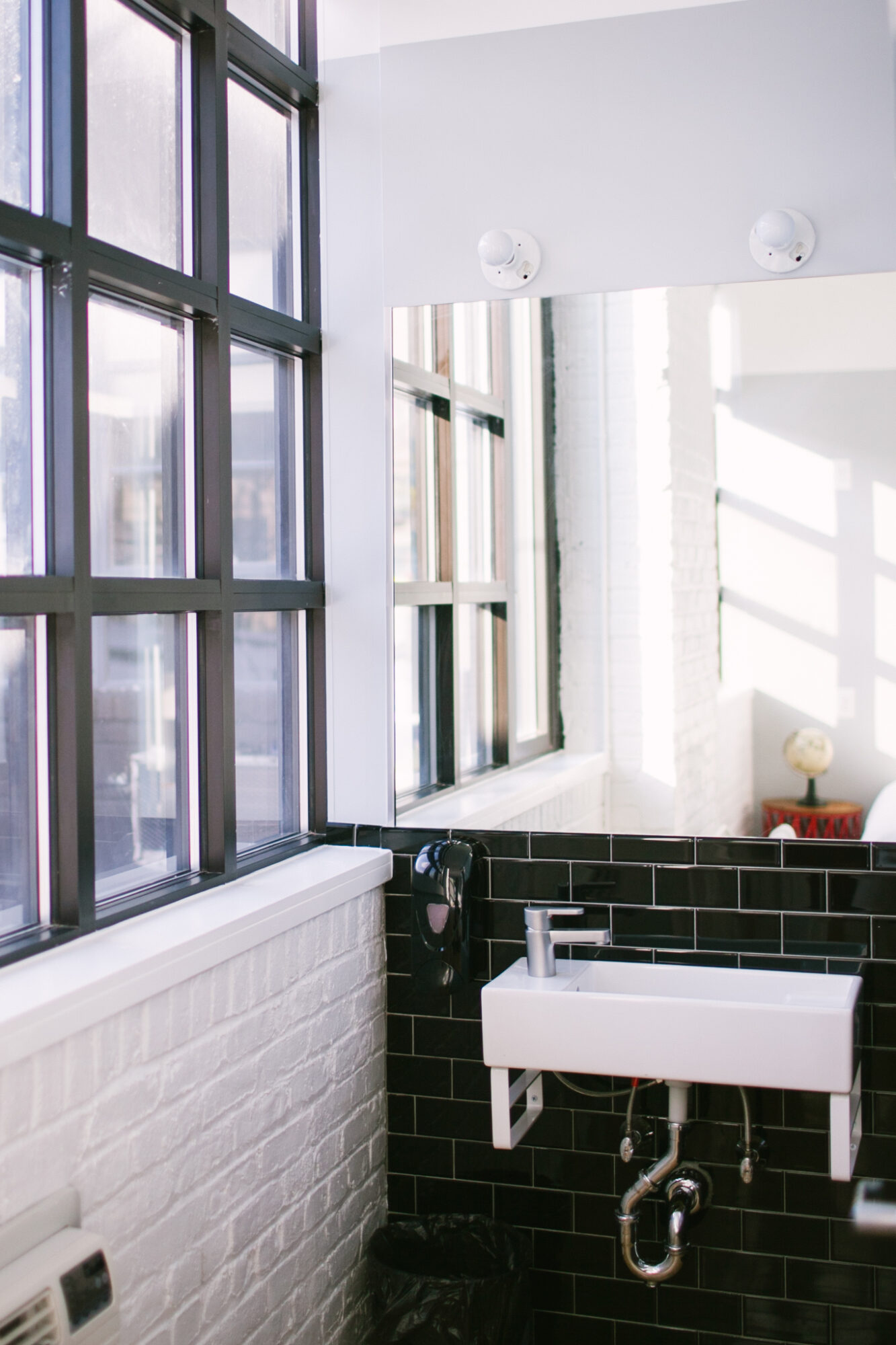
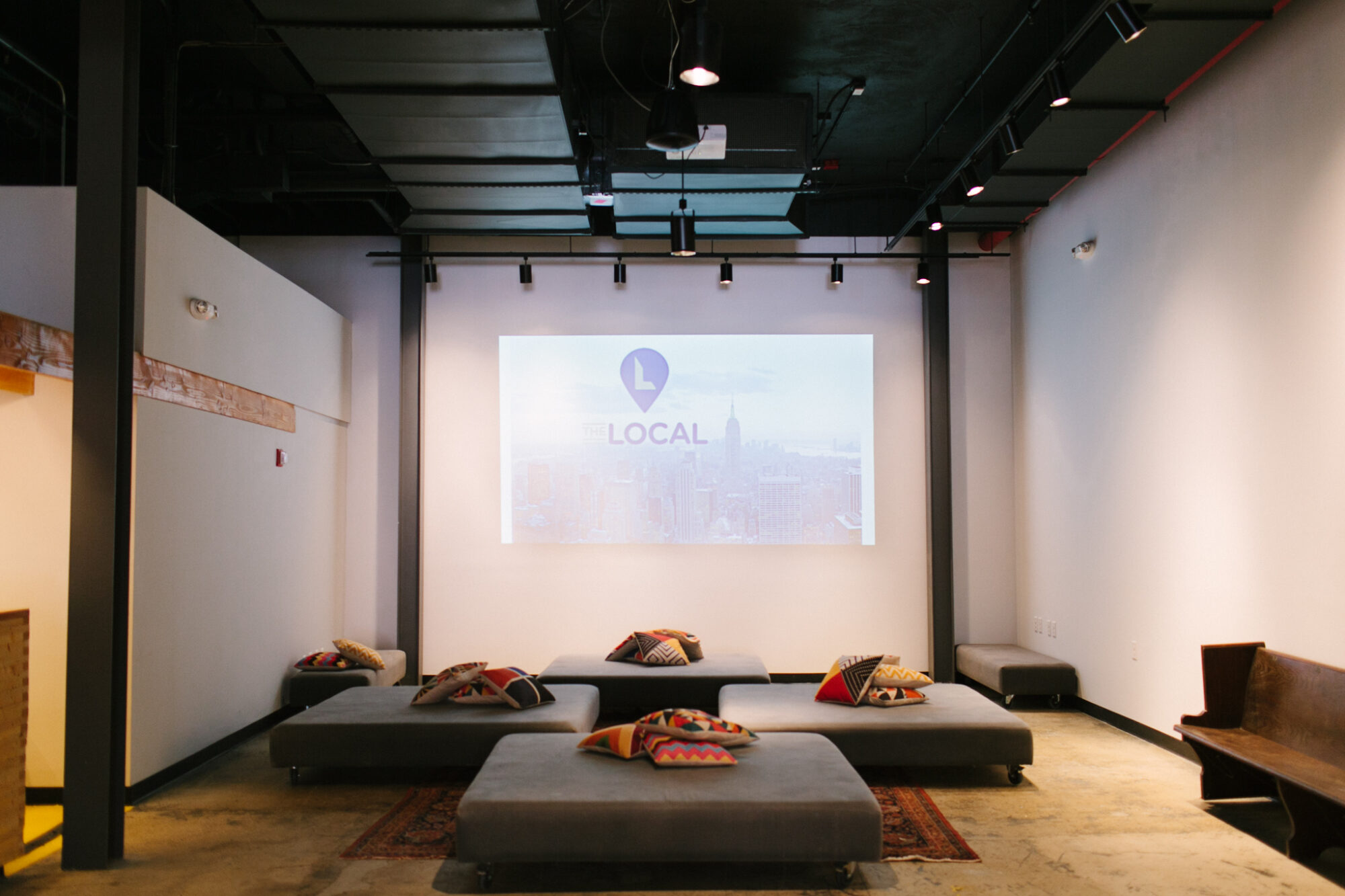
Jeremy Wells: Got you. Yeah. I think just thinking about the partnership, and obviously you guys are sisters as well, being involved in a handful of business partnerships myself, I know that that can present some challenges. There’s a lot that goes into selecting a business partner and doing that successfully. What does that look like for you guys as sisters even? How do you guys handle troubleshooting issues or just going through and making tough decisions? What does that look like for you over the past years?
moving to a foreign country in your young 20s with your sister and being in business, a lot of hilarious situations arise
Lee Gonzalez: That stuff that you’ve just mentioned is the easiest part. The fact that you said it’s how do you choose a business partner, that was the easiest part about working with your family and working with Lauren is that I trust her implicitly. We’re very close. We’ve always been good friends. We’ve always gotten along. We’re also really close in age. And working with Lauren, it’s almost like a mind melt where hard decisions aren’t that hard because the two of us have been working together and for many years we lived together. And so in a lot of ways we are of one mind, which is really nice. And beyond that, I just, again, completely trust her. And so I’m never worried about does she have an ulterior motive or what is she thinking? So that’s really lovely. It’s also been extremely fun. I mean, moving to a foreign country in your young 20s with your sister and being in business, a lot of hilarious situations arise and they’re even more hilarious when you’re with your sister. So that was really fun.
Jeremy Wells: Yeah, that’s really interesting to hear that and it’s refreshing too because I think all of us have probably heard like the concept of keeping family out of business and not kind of merging the two. But I love how you guys have kind of seamlessly and just effortlessly, it seems, merged the two and are thriving in that.
Lauren Gonzalez: There are definitely challenges. I mean, it’s not all fantastic all the time. I think one of the things that’s tough is business dominates our relationship sometimes. And so as much as we can try to go out and have drinks and talk about other things, it always comes back to what’s going on at the hostels. And it’s typically fun conversations, but it can kind of dominate sometimes. And I think if you interviewed our parents, they would probably have a different perspective too.
Lee Gonzalez: Yeah. Or Lauren’s husband.
Lauren Gonzalez: Oh, yeah, or my husband, yeah, because they know the ins and outs of everything too. They know probably all of our employees’ names, every little detail because we talk about it so much. So that can be tough too. And I think also it just makes our relationship more complex because it’s not only that we have a relationship with sisters and friends, but also business partners. And so when you are making decisions and thinking about things for the business, there’s also the emotional sister and family relationship side of it that comes into things too. So it’s not always as black and white as it might be if it was just a strictly business relationship. So it’s their challenges as well. But for the most part, it’s been wonderful.
Dustin Myers: We’ll have to have your parents on the podcast next.
Lauren Gonzalez: I’m sure they have a lot to say.
Lee Gonzalez: They would love that.
Dustin Myers: So I kind of want to transition the conversation to the idea of the hostel in that concept. Those being less popular in the US market. I’m curious how you kind of saw the opportunity there. And what was your mindset bringing a hostel concept to New York City?
Lauren Gonzalez: It might be good to pause quick and just define what a hostel is for your listeners because I know a lot of times we encounter people who aren’t familiar with the concept. So we’ll share sort of what our definition of it is because it’s not really anything that has a strict definition. But hostels generally are shared accommodation. That’s really what sets them apart is that we have bunk-style rooms where you may rent just the room, or sorry, the bed in the room and not the entire room. So yes, you will potentially be sleeping with strangers.
the biggest part of hostels, and what we’ve focused on, is sort of the social component of it.
It’s also defined as kind of a more budget or economic way of staying just because it’s cheaper to rent the bed. But really the biggest part of hostels and what we’ve focused on is sort of the social component of it. So a lot of people when they travel to hostels, most people are looking to meet other people. They want to make friends there. The hostel plays a much bigger role in the guest experience than a typical hotel would. So hostels have a lot of programming, a lot of events. Really social bars and food and beverage outlets. So just wanted to define that so in case people are curious kind of what a host is generally. And then Lee, if you want to talk about the US market and our thoughts.
Lee Gonzalez: So it’s really funny when you just think about our history that we, with no formal hospitality background, thought it would be easier to pick up and move to Europe to start a business than to do anyways. And that’s honestly how it started. It really at age 23, 24, with no clue about running a hotel or hostel, it seemed, and I think it was so much easier to do this in Europe than it was in the States just because the market exists there. We didn’t have to reeducate anyone. We knew that there were hostel guests and there were other hostels, and it was easier to start there.
So hosteling has been around forever, mom-and-pop, small budget accommodations have been around forever. I should say in the rest of the world, right? The United States is a newer economy and so therefore the hotel accommodation market is newer and different than the rest of the world. I’ve spent a lot of time thinking about this because I do think it’s totally crazy that we had to go abroad to do this before we kind of had the conviction to do it in our home country. And I think it’s just the way the market matured and the way the US matured economically is obviously a lot different than these older nations. So I think about when the United States middle-class all of a sudden had money to spend to travel, it was at a point where cars were becoming popular and people were hitting the road. People were moving out of the cities. They were moving into suburbs. And travel for Americans was road trips. And at that time, the motel, the motor hotel, that’s when that was born and along with that budget chains. And so I think the United States accommodation market kind of really ripened at a period where they could jump over the hostels of cities or cheaper mom-and-pop places in cities straight to motor hotels and then the birth of budget chains. And so I think that kind of leapfrogs the need for hostels.
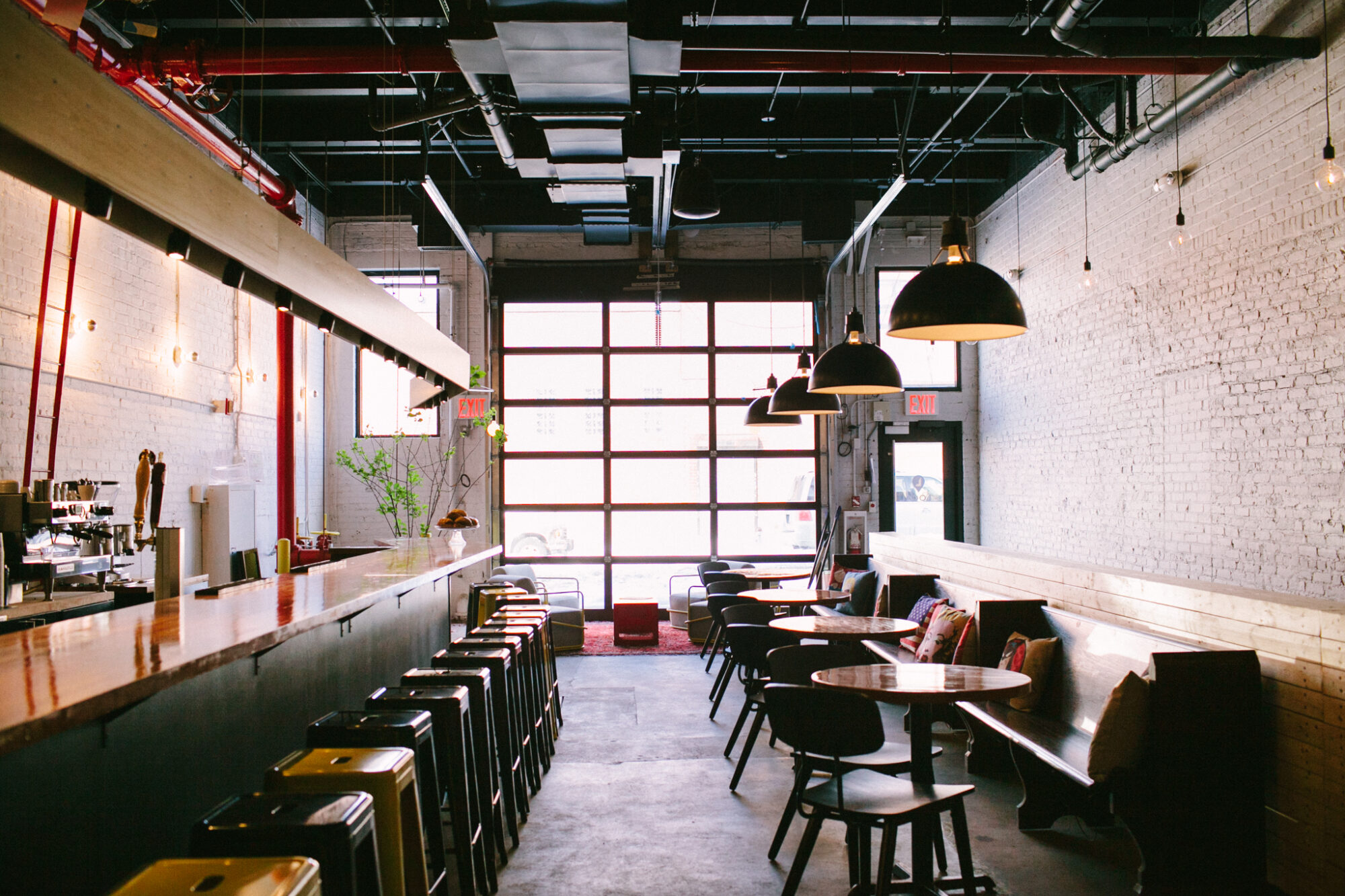
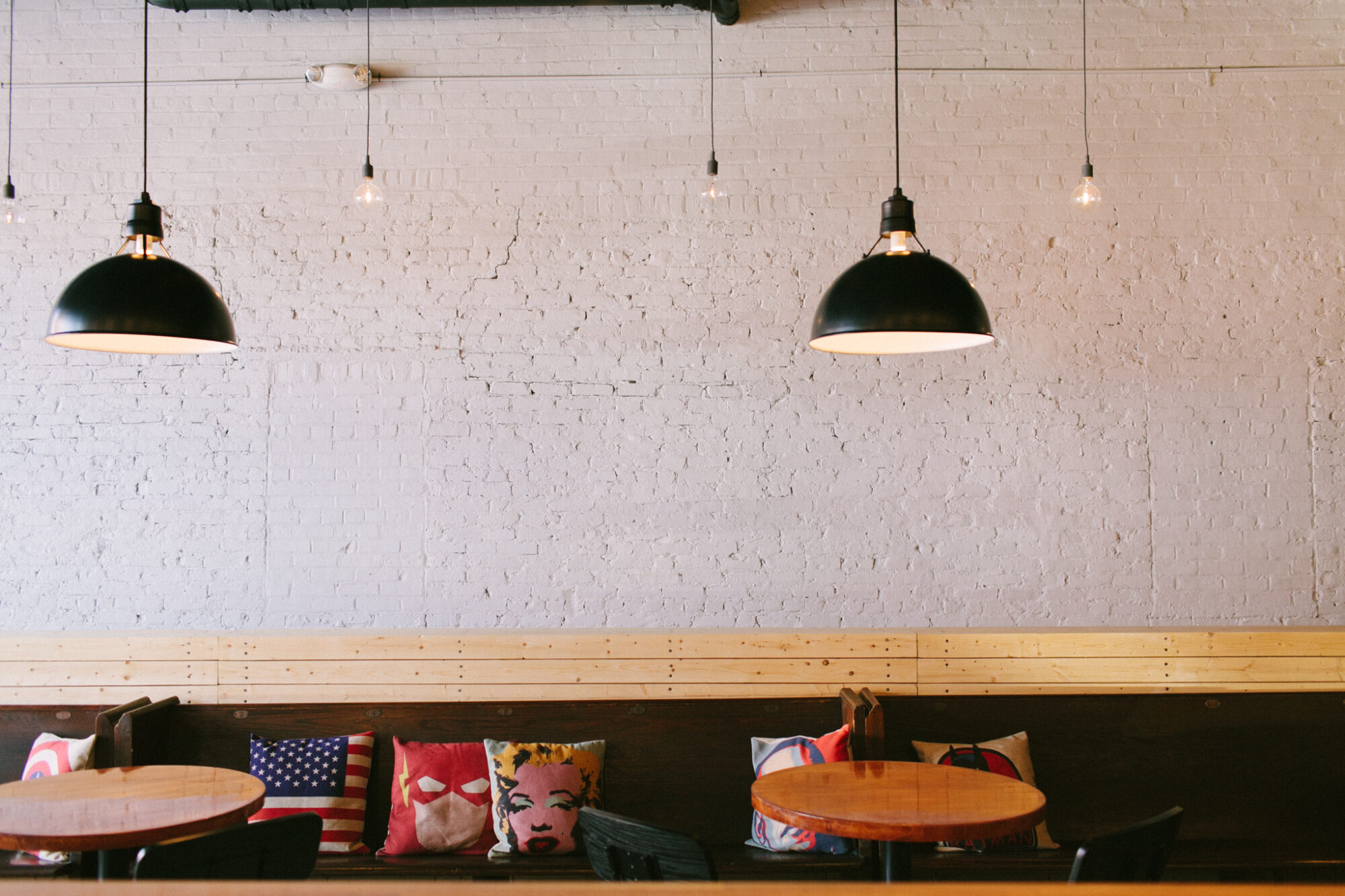
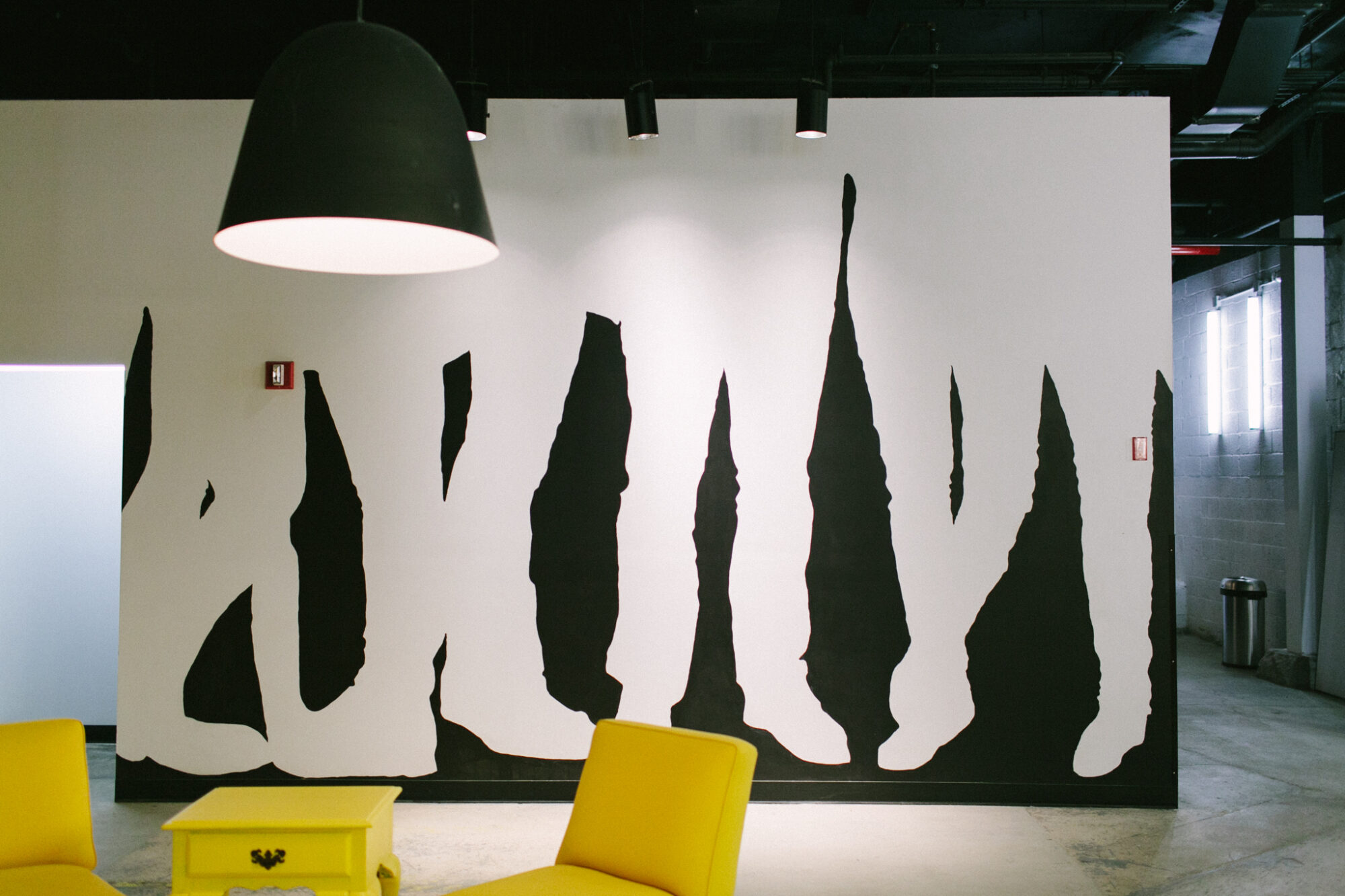
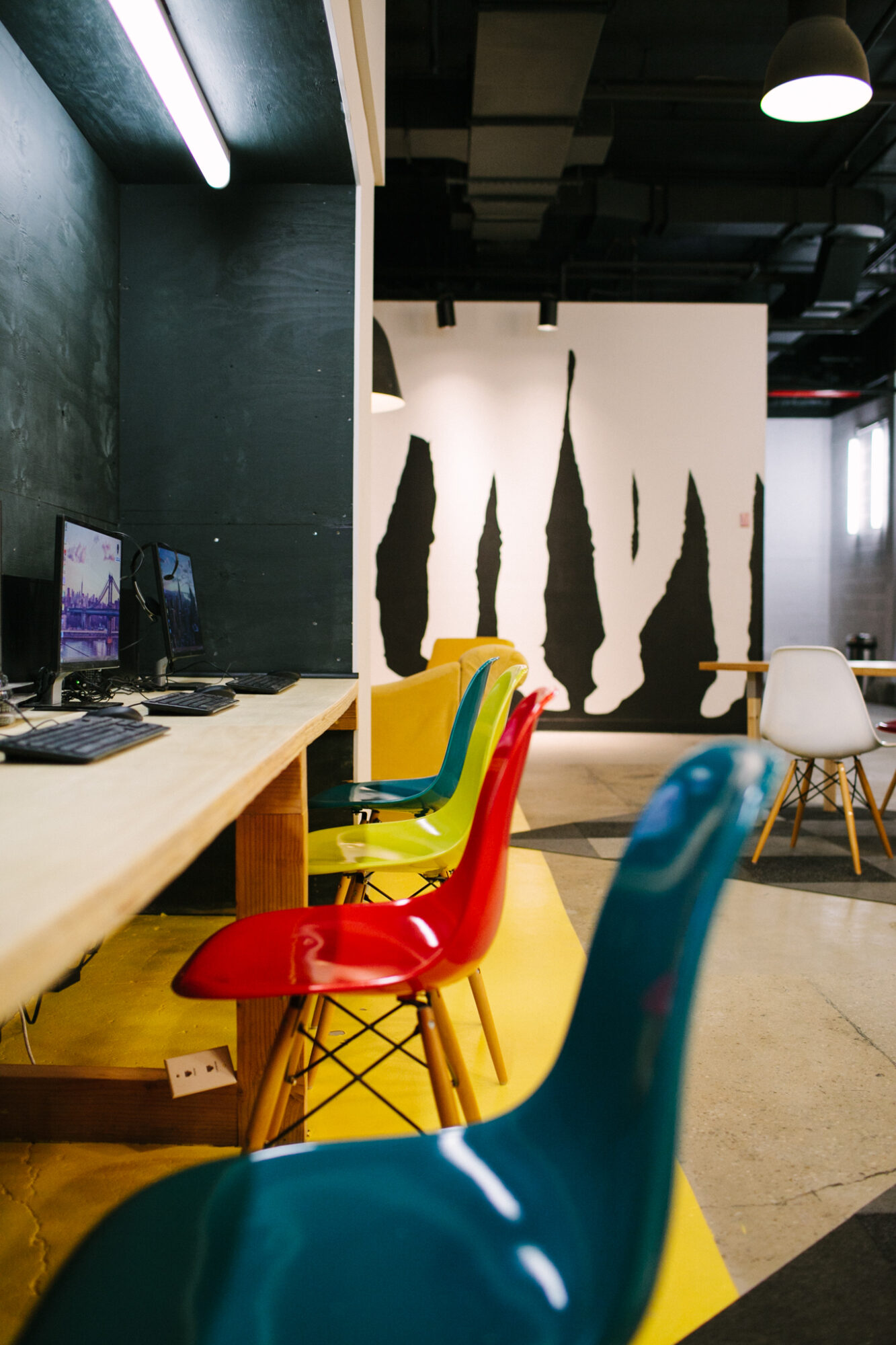
Lauren Gonzalez: I think also there’s just like geographically, the US is just a larger scale country where there aren’t great train networks between cities. So there’s less of a backpacker culture. There’s less of people going on 15-city tours. I think Americans have a lot less vacation time where Europeans, Australians may have a month, two months off to kind of go backpack and go city to city. We don’t have that in the US. And so I think there’s just less of a sort of backpacker culture as well here.
Jeremy Wells: Yeah. I have kind of two questions. As you’re talking about the differences between the European market and perceptions that they have about hostels and just travelers using those versus the US and just some of the different considerations there, I guess question number one, and maybe Lauren, you can tackle this and then leave the next question, but question number one, what aspects of your hostel experience, jumping from Barcelona to doing the local in New York and then Lolo Pass in Portland, what were some things that you had to evolve in the hostel experience you were providing? And then Lee, for you, I was just thinking through like as you’re looking at new opportunities and growing your portfolio and looking for new properties, what are like the differences in pre-development in the due diligence period? Are there differences of what you’re looking for, for a successful hostel versus what some might look for traditionally with a normal hotel? Are there different considerations there? So Lauren, if you want to maybe tackle the first question there.
Lauren Gonzalez: Sure. So it’s funny because we really have… The models evolved a lot from Barcelona, which was going after European backpacking, very traditional hostel goers to New York where we have a big international… our guests are 85% from coming from abroad and 15% domestic. So we knew that we could kind of take the traditional European hostel model with a lot of bunk beds and plop it in New York and it would work. And then to move it across the country to Portland, Portland has far fewer international travelers, and so we knew that that would be the biggest adaptation is kind of how do we make this work in Portland where domestic travelers are our primary target.
So a few things that we’ve changed is, one, the use of the word hostel. It’s tough. I would love to use it more often, but I think there’s a little bit of a negative connotation with it in the United States with unfortunately the horror film called the Hostel, things like that. And just people who aren’t as familiar with the word. So we pick and choose when we use it. But in Portland with Lolo Pass, we haven’t used it as much. We use it when we are marketing towards people that we know are familiar with hostels and are looking for hostels and who will be pleasantly surprised with the quality of our product. But when we are talking to banks or we’re talking to traditional hotel goers, we usually drop that word. And then the other is just skewing more towards private rooms. So the room mix in New York were almost primarily dorm rooms. And in Portland, at Lolo Pass, we have 87 rooms and 60 of those are private rooms.
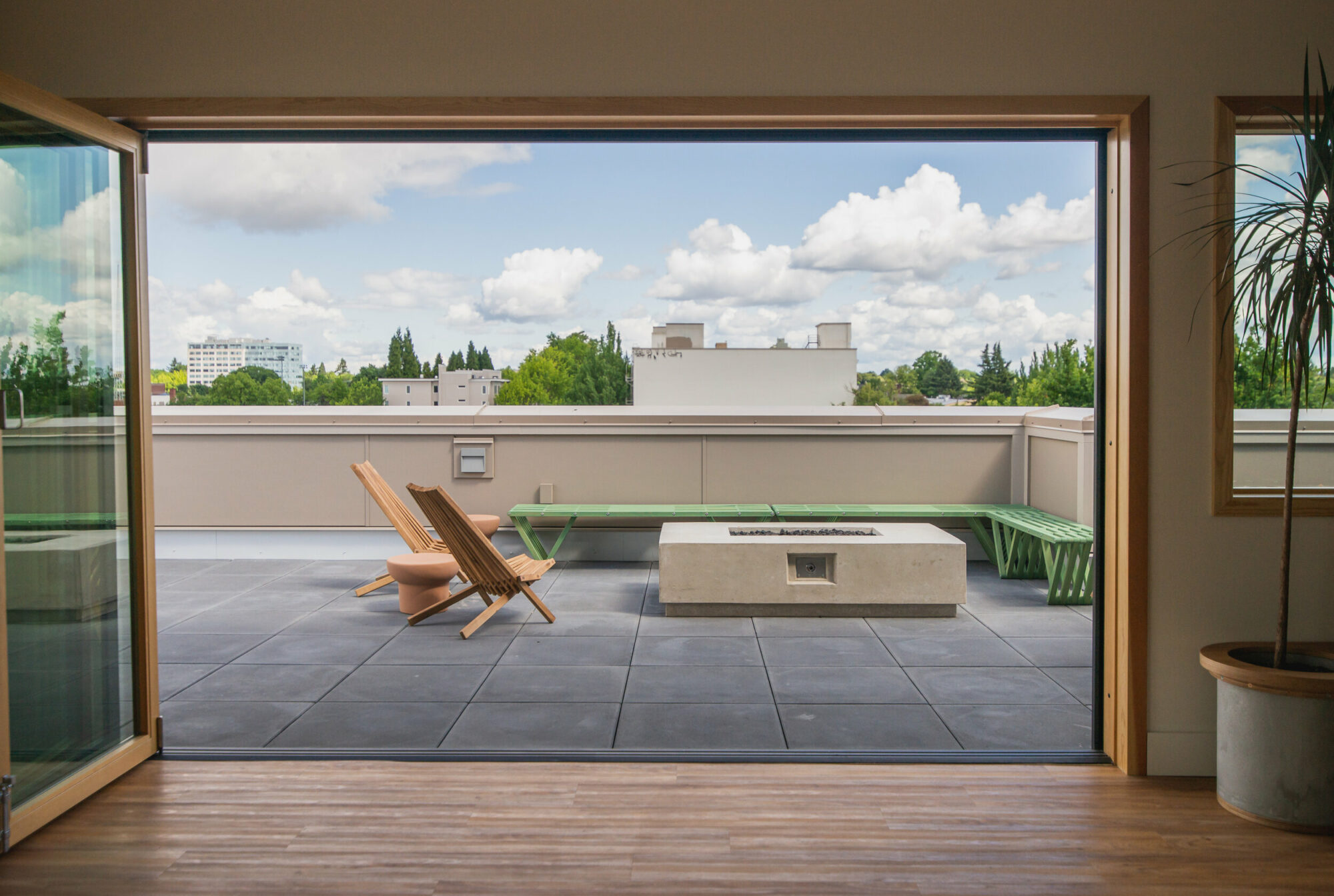
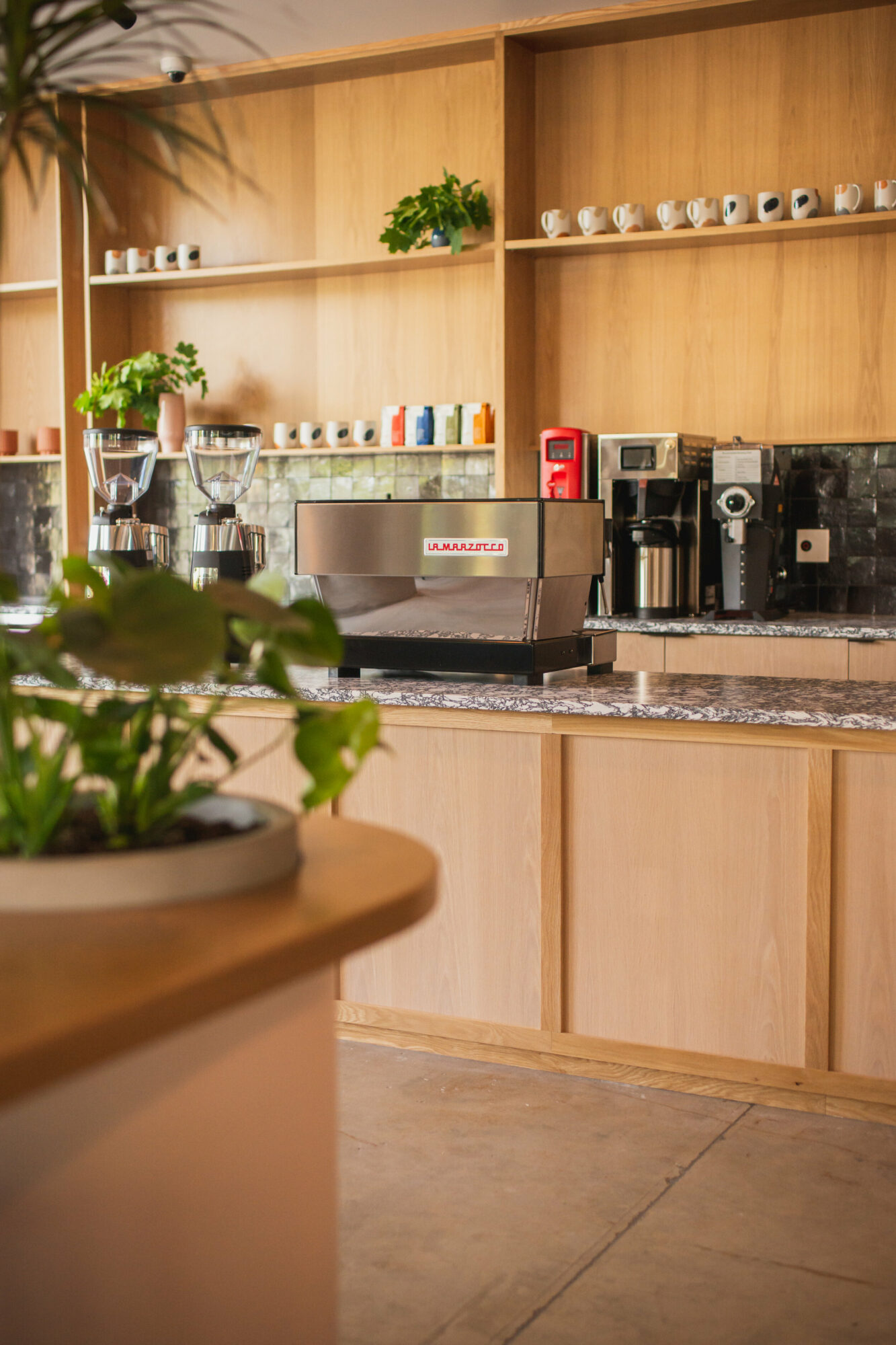
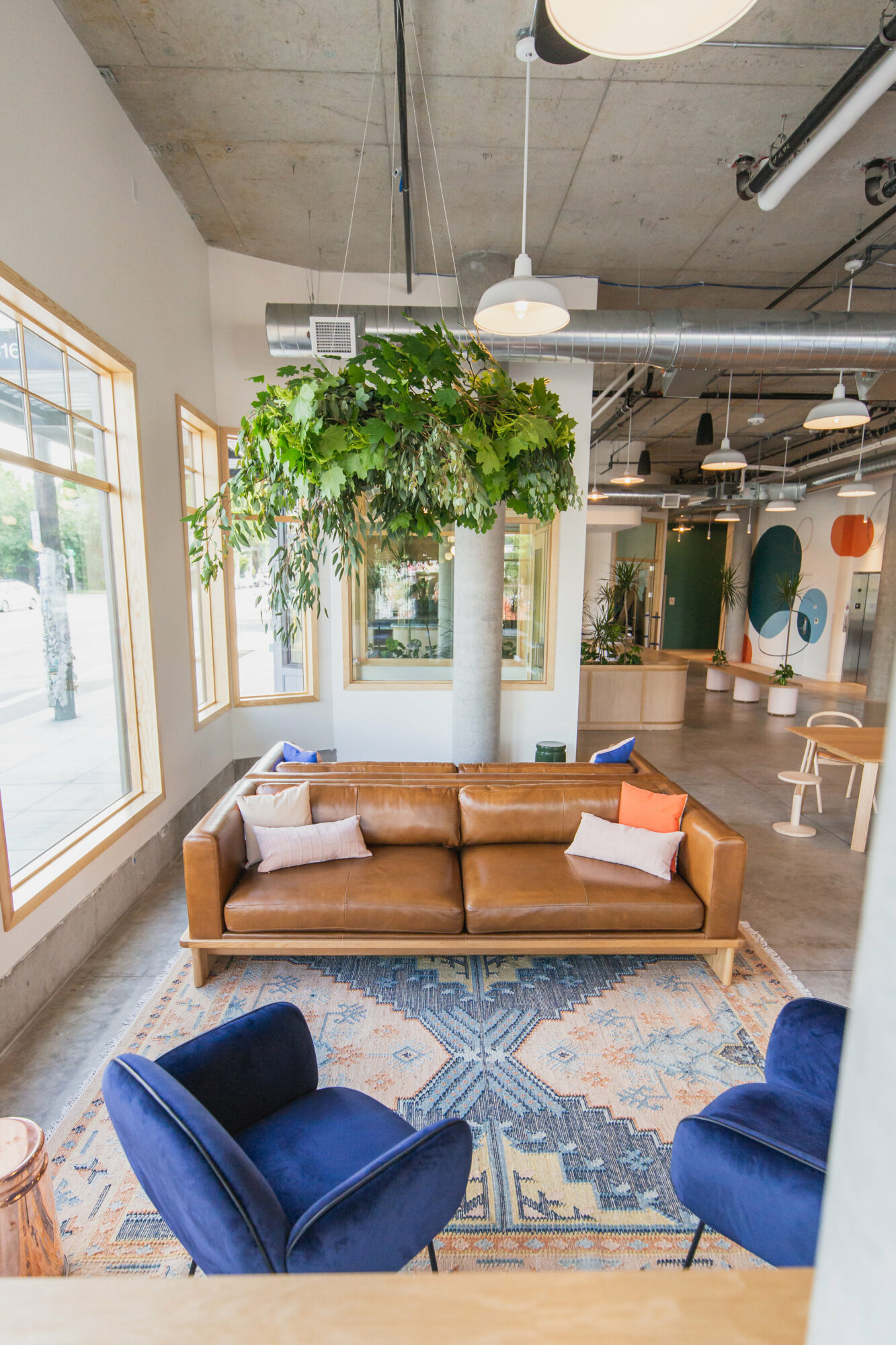
And so we knew that North American travelers would want their own space. They maybe don’t want to share the bathrooms. We still want to provide people with that fun, social experience, all kinds of programming. But we designed the building with a lot more private rooms. And I mean, that’s been it for the most part. The goal really was to kind of preserve what we call that hostel magic and just make sure that the experience and the fun and the liveliness is conveyed in all the properties no matter what the room mix is or no matter what we’re calling it.
Lee Gonzalez: And then in terms of what we’re looking for when we’re developing projects, I think the first thing that sets us apart from a traditional hotel is the location. And so in both in New York City and in Portland, we are in neighborhoods that are not where all of the traditional hotels are clustered because we know that a hospital goer is a lot more adventurous and a lot more open-minded than your traditional tourist. For example, in New York City, we’re in Long Island City, Queens, which is just across the river from Midtown and we even struggle with the booking sites. Say that we’re not in New York City, which is so frustrating because Queens is in New York City, it’s literally one stop from Manhattan, we’re closer to Times Square than most other hostels are, but people have it in their heads. I know that a backpacker looks at the map of a city and they’re used to rivers bisecting cities. They don’t think a thing of being on the other side of the river because they know that they’re going to find the bargains there. They’re going to find the authentic experience. They’re going to find the more interesting travel experience.
Same thing with Portland. So we picked the central East side in Portland, which is the east side of the Willamette River, and most of the hotels are clustered around the downtown area, which is the business district. And we did that because we knew that the fun, interesting things happening in Portland are all happening on the east side. The new restaurants, the new bars, all of that stuff, the authentic experience of Portland that you really want your guests to experience is happening in that neighborhood. So that’s one thing.
We’re part of the fabric of the neighborhood.
Another thing we’ve done is, so three out of the four projects, both the Barcelona projects and the Portland, or excuse me and the New York project, were adaptive reuse of existing buildings, which we love because for us it’s really important rather than the cookie-cutter flagged hotel that looks the same in every single location, we love the connection with the neighborhood and kind of the sense of inevitability that this place has always been here or is meant to be here. We’re part of the fabric of the neighborhood. So that’s another thing is we love to do adaptive and would probably prefer to do adaptive reuse projects. Portland, unfortunately, we had some financial challenges with the cost of seismic upgrading. And so it made more sense to do ground up, but that was a design challenge in itself, trying to make it feel like this building was always meant to be here. This looks kind of historical, even though it’s brand new and really fits into the neighborhood.
Another thing I should say, internally designing the place, the amenities that we offer are a little bit different than a traditional hotel. So things like the guest kitchen that has evolved with every project. We always have coin operated-laundry because that’s really popular with our guests. And then we do devote way more floor space to the social common spaces than a traditional hotel would do.
Dustin Myers: Yeah, and that seems like one of the differentiating factors of why I would want to stay here as opposed to just whatever other hotel was available is that social aspect that you guys have tried to curate. Maybe you could give us some more examples of how you’ve done that and maybe some stories around just successes that you’ve seen in cultivating that.
Lauren Gonzalez: Sure. So in the local, we’ve got a bar. So really when you walk in, you’re in the bar. We designed it like that. So we wanted people to feel like they were walking into a party, into something exciting happening. And then we also have a big, it was a large warehouse, so the lobby was kind of this big open space that we weren’t sure what to do with. And so we have these giant white walls and decided that we wanted to turn it into an art gallery for local artists to display their art at no cost. We don’t take any commission. So that has been a big component of what we do at the local in New York where we do a lot of parties with art openings and different people showing their work. Because we’ve got this big open space, we’ve opened it up to the community where if people want to host a film screening or a dance performance or a comedy show, we typically give people the space for free so long as our guests are also included in the experience and will benefit from it.
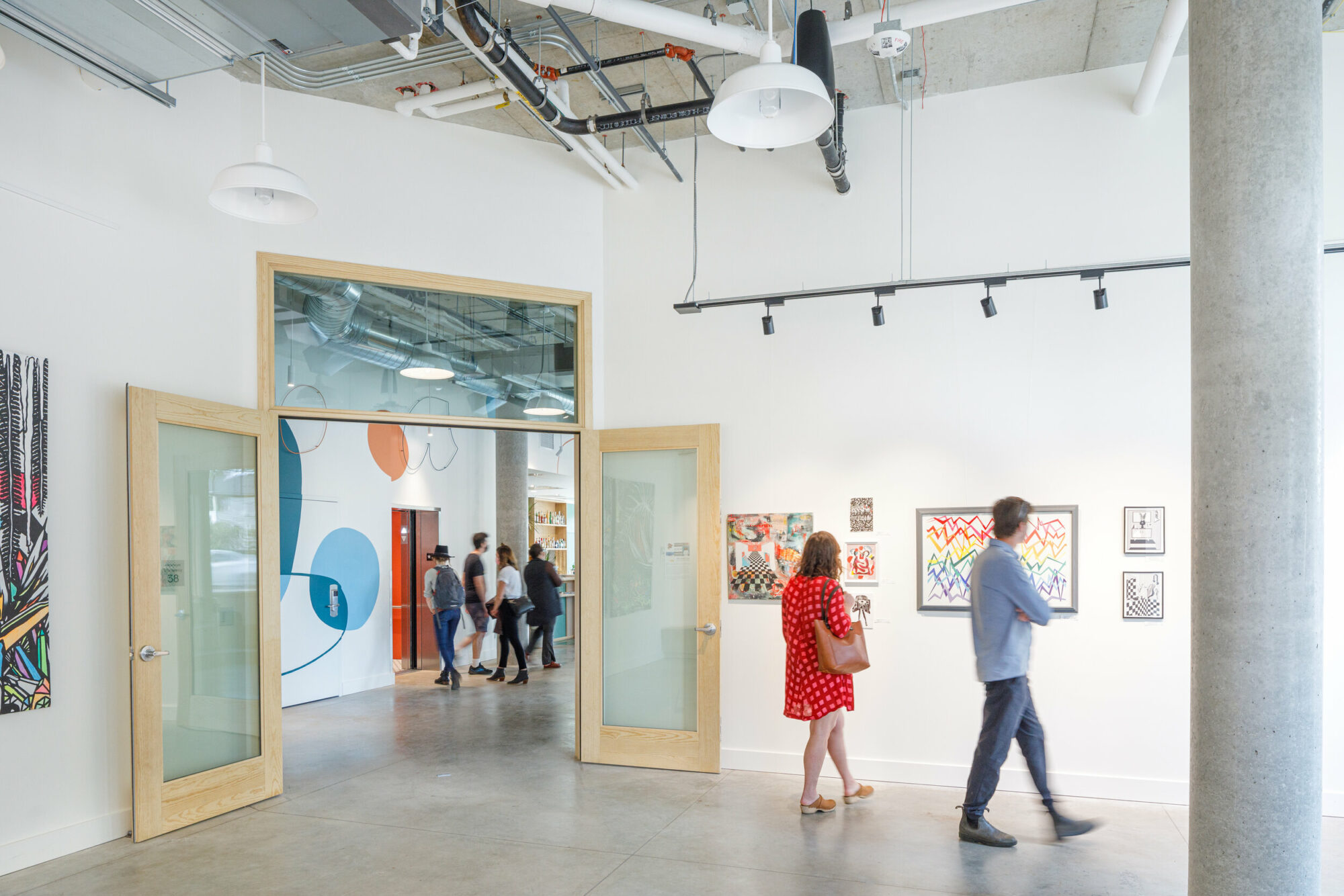
And so that’s been a great way to bring the community in and then also enhance the guest experience because I truly think that people care now about where they’re staying, who’s running it, who’s involved. They want stories. They want it to feel a part of the city and to be really authentic and not just kind of something that you could plop anywhere. And so for us, designing those experiences and events to give people a richer introduction to the city is super, super important to us.
designing those experiences and events to give people a richer introduction to the city is super, super important to us.
So in Portland, at Lolo Pass, we’ve got events that happen almost weekly. We’re doing like a standup comedy showcase once a week. We’ve got a trivia event once a week. We’ve got someone who comes in and does a free yoga class for guests once a week. We also designed and programmed an art gallery in there because that was such an important part of our experience in New York that we wanted to have that in Portland as well. Yeah. So it’s a lot of work. I think it’s probably more than a traditional hotel does, just in terms of making these connections with the community, getting people in, getting all this stuff planned. But it’s really rewarding and I think it just adds so much to guest experience that it’s just a part and parcel of what we do now, but that is such a big part of it.
Jeremy Wells: Yeah. That’s really cool to hear, how you guys have activated your spaces and it’s like multipurpose, like benefit to your guests and benefit to the community. And I think that’s kind of a recipe for…
Lee Gonzalez: Our guests. Yeah. We always say our spaces are just as for the neighbors and neighborhood as it is for our guests.
Jeremy Wells: I love that. That’s awesome. So as you look into the future, obviously this podcast is called Future Hospitality. We like to talk about the future of the industry, but also the future of the guests that we have on here. And as you look ahead to future opportunities, do you guys have anything in the future that is exciting to you? Like other properties or just more things you’re going to be adding to your properties right now? Or what does that look like for you guys?
Lee Gonzalez: We don’t have anything concrete in the pipeline right now, but we really love the concept of Lolo Pass. We think that this is a concept that needs to be in more cities across North America. We’re really driven by the democratization of travel, and we think travel is a luxury good with the luxury that should be afforded for every budget. You look at the way the media portrays travel and it’s always these aspirational ridiculous hotel rooms and safari and tours that are so loose that it really only a very small percentage of the population can afford them. And so we really believe in Lolo Pass and hostels in general is a way that anyone and any budget can travel and see the world and learn more about the world around them and differences amongst people. And so we think that we’ve created a safe space for that and we really hope that we can bring that to other cities around the country.
Jeremy Wells: Yeah. Do you guys have any cities you’ve been eyeing, just looking for opportunities or is it just kind of in the back of your mind?
Lauren Gonzalez: We’ve got a list. It’s probably like 20 cities at this point. But yeah, I mean, I think any city that’s a destination for young, curious, open-minded travelers, we’re interested in. I mean, I think that just because you’re on a budget doesn’t mean you should have to settle for something that’s kind of soulless and cookie cutter. And so we want to be able to provide that to people that are traveling. But you can stay somewhere that’s design focused, that has cool F&B, that has interesting events going on, but you don’t have to pay an arm or leg.
Jeremy Wells: Yeah. And that line I think Lee that you said it was, you believe that luxury should be afforded to everyone, every budget. I love the idea that you guys are promoting, making travel a more accessible thing to everyone. I’ve stayed at hostels before and I’ve loved the experience, especially when I was younger. It was just a really exciting, vibrant, energetic space. And I think what you guys are trying to do is really, really awesome. So I hope one opens within driving distance or close to us so I can come visit it. Otherwise, I’ll have to make some trips to Portland or New York sometime soon.
Lauren Gonzalez: Love to have you.
Lee Gonzalez: Yeah, definitely.
Dustin Myers: Well, thank you so much for taking time today. I think it’s really exciting that you guys are embracing this industry and this product type and kind of evolving it for a new customer and just the ways that you have injected thought and creativity into creating those experiences I think is really inspiring and applicable for a lot of people in different spaces as well. So thank you so much for joining us today.
Lee Gonzalez: Thank you. Thanks for letting us tell our story.
Dustin Myers: Awesome. Well, we’ll be in touch and look forward to seeing what you guys do.
Lee Gonzalez: Take care.
Jeremy Wells: Thanks guys.
Lauren Gonzalez: Thank you so much.
[End Interview]